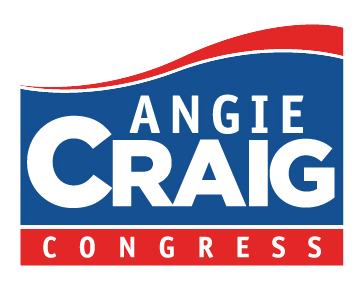By: Emily Cochrane
7/1/2020
WASHINGTON — The House agreed on Wednesday to extend for five weeks a popular pandemic relief loan program for small businesses, sending President Trump legislation to give companies more time to apply for federal help under an initiative created by the stimulus law.
The move to extend the Paycheck Protection Program through Aug. 8, which allows small businesses to secure low-interest loans to help maintain their payrolls, came as Republicans and Democrats remained divided over how much additional federal assistance to provide to businesses and individuals affected by the coronavirus and the economic hardship it has caused.
The program shuttered on Tuesday with more than $130 billion in unspent loan money, after allocating $520 billion in loans to nearly 5 million businesses nationwide. But just hours before, senators unexpectedly reached agreement for a five-week extension. The House cleared it on Wednesday afternoon without a formal vote.
Representative Angie Craig, Democrat of Minnesota, who oversaw the measure’s passage on the floor, said lawmakers needed to set aside partisan politics and listen to small-business owners. “Our communities deserve our commitment that their best interests are what is driving our legislation,” she said in a statement.
After the vote, Speaker Nancy Pelosi of California urged the Senate to take up House legislation that would extend the program through December and called on the administration to release information about who had benefited from the program.
“The administration’s breathtaking lack of transparency continues to raise serious questions as to why the administration is failing to ensure this lifeline reaches the small businesses in our most impacted communities,” Ms. Pelosi said in a statement.
But a much broader and more polarized clash between Republicans and Democrats over whether to extend an array of other assistance programs set to lapse this summer — such as enhanced unemployment benefits that expire at the end of July — will wait until later in the month, with both chambers slated to leave Washington for the Fourth of July and not fully return for two weeks.
“It’s certainly something to celebrate,” said Senator Chuck Schumer, Democrat of New York and the minority leader. “But I would have hoped that our two parties could have worked this out before last night, as a small part of much broader legislation to address the many challenges posed by Covid-19.”
With a number of provisions in the $2.2 trillion stimulus law set to expire at the end of July and new outbreaks forcing many states to slow efforts to reopen their economies, lawmakers have acknowledged that another relief package will be necessary when Congress returns. The Democratic-controlled House in May passed a $3 trillion measure that extended several of those provisions, including an extension of jobless benefits that provide an additional $600 per week. But Republicans have rejected it, calling it too expensive and broad in scope.
Divisions remain over what should be included in future legislation, including how to address the Paycheck Protection Program, administered by the Small Business Administration, which allows companies to have their loans forgiven if they maintain payrolls at a certain level. The program enjoys bipartisan support, but it had a chaotic start and has drawn criticism both for criteria that were regarded as too broad — loans went to large, publicly traded firms — and rules that recipients said were too restrictive, barring them for using the money for their most pressing needs.
Small businesses, desperate for relief after closing their doors to slow the spread of the coronavirus, flooded the administration with applications, prompting Congress to inject an additional $320 billion in April. Two months later, lawmakers cleared a series of modifications to relax the terms of the program, including giving small businesses more time to spend the loan money. But without Congress’s action on Wednesday, the window for applying for the loans would remain shut.
Steven Mnuchin, the Treasury secretary, told lawmakers on Tuesday that he had been discussing the possibility of repurposing the funds left in the program for businesses whose revenues had dropped significantly, such as restaurants and hotels.
Democrats have proposed extending the application window for the program through December and allowing certain small businesses to apply for a second loan, provided that they could show they had used all or most of their initial loan and that they had lost substantial revenue.
Senator Marco Rubio, Republican of Florida, said on Tuesday that he preferred using some of the remaining funds in the program to provide a second round of assistance to small businesses.
“Our hope is that we can use that as the sort of foundation for building a second round of assistance in a more targeted way,” he said.
